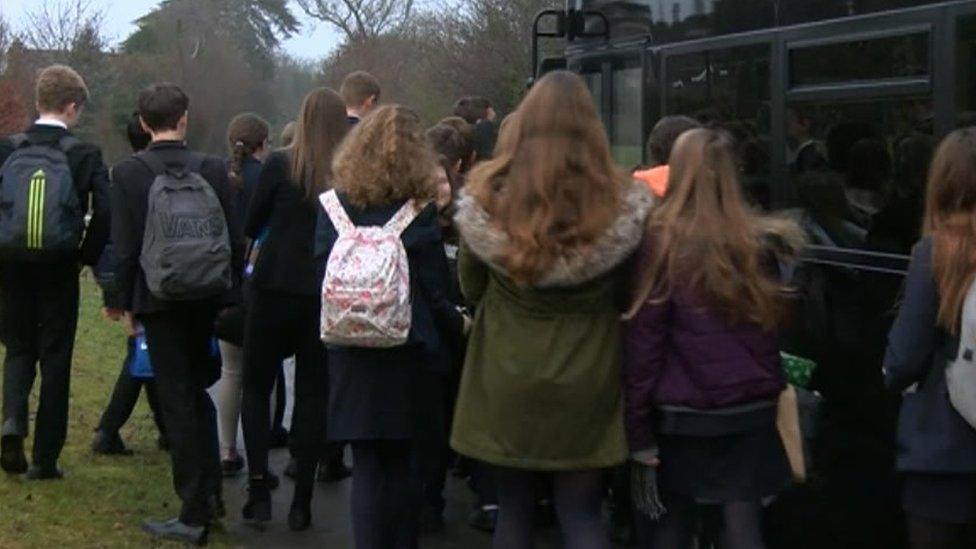Hampshire home-to-school SEND transport scheme scrapped
- Published

A quarter of the children on the scheme have special education needs and disabilities
Plans to scrap transport for children with special needs between home and school have been approved by a council.
Hampshire County Council currently picks up 12,000 youngsters from their homes and takes them to school.
The council said it would save £986,000 by using dedicated pick-up and drop-off points allowing multiple children to be taken on single journeys.
The most vulnerable children are likely to be exempt as the changes come in over the next three years, it added.
A quarter of the 12,000 children supported by the home-to-school transport scheme have special educational needs and disabilities.
The Disability Union criticised the move and said the changes had not been made with the children in mind.
'Mismanagement of funds'
Kirsty Smillie, the charity's strategic development officer, said: "Hampshire County Council is not listening to schools and parents regarding the needs of the children.
"Young people with autism, OCD, anxiety, or learning disabilities may have an especially hard time adjusting to a new route and new people."
She said no information had been given to parents about the start of the new school year in September.
Vulnerable children should be a priority "but instead are always the first to suffer from mismanagement of funds", Ms Smillie added.
A public consultation on the changes was held between January and March and received 945 responses, according to the Local Democracy Reporting Service.
Parents who submitted a response were strongly opposed to the use of drop-off points and shared transport.
At a children and young people select committee meeting in Winchester on Tuesday, assistant director Suzanne Smith said the changes would not be implemented unilaterally but on a case-by-case basis.
Approving the plans, the county council's children's services lead Cllr Roz Chadd said: "I want our home-to-school transport to be inclusive, to support children's transition but also to be sustainable. Part of that sustainability is trying to reduce the number of vehicles on the road.
"We will work with parents and schools over the next two to three years so that the children who are able to meet at a collective point can do so, ensuring our service for the future."

Follow BBC South on Facebook, external, Twitter, external, or Instagram, external. Send your story ideas to south.newsonline@bbc.co.uk, external.
Related topics
- Published9 July 2022

- Published17 February 2022
